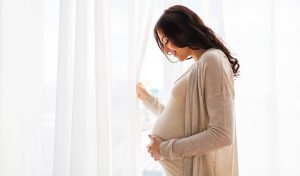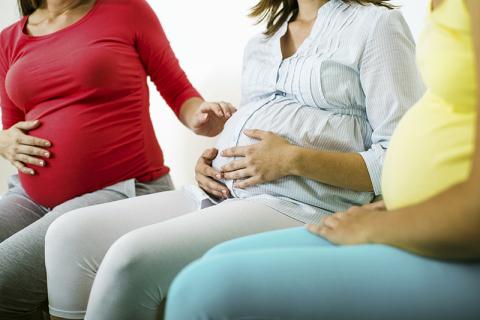As climate change accelerates, the concern regarding the impact it has on human health also increases. Some humans are more at risk of being affected depending on various factors. Pregnant women and babies face greater health risks from the combined threats of extreme heat and air pollution. Babies can be affected by climate change even before birth, and their childhood may be impaired by long-term health issues.
Air Pollution, Climate Change, and Health
When humans burn fossil fuels like coal, oil, and gas, it significantly influences climate change because it causes pollutants to be released into the air. These pollutants include greenhouse gases like carbon dioxide, which causes heat and air pollution. Burning fossil fuels also contaminates the air, making it more difficult to breathe. Pregnant women and developing babies have heightened vulnerabilities to the harmful effects of pollutants. Here are some of the most concerning effects it has on pregnant women and babies.
1. Preterm Birth and Low Birthweight
Heat and air pollution have been linked to babies being born prematurely. Preterm causes a magnitude of illnesses and deaths in newborns. Two common health conditions include respiratory problems and developmental delays. Additionally, low birth weight caused by heat and air pollution leads to increased risk of health issues such as poor immune systems and chronic diseases like asthma.
2. Health Complications for Pregnant People
Pregnancy increases the vulnerability to certain issues such as hypertension (high blood pressure) and pre-eclampsia (a pregnancy complication marked by high blood pressure and organ damage). This heightened risk combined with the threats of extreme heat and air pollution will lead to worsened health during and after pregnancy.

3. Increased Risk of Stillbirth and Sudden Infant Death Syndrome (SIDS)
The risk of stillbirth is increased with higher temperatures, which can lead to long-term emotional and physical consequences for those affected. Additionally, babies exposed to high levels of air pollution are more susceptible to Sudden Infant Death Syndrome (SIDS).
4. Asthma and Other Respiratory Issues
Unborn babies exposed to air pollution increase the risk of them developing asthma and other respiratory conditions later in life. Asthma is one of the most common conditions in children.
5. Developmental Issues and Neurodevelopmental Disorders
Studies indicate that development issues in children can be caused by exposure to air pollution while in the womb. Autism spectrum disorder (ASD) is among the developmental issues linked to air pollution.

Protecting Yourself and Your Baby
Pregnant women can take several precautionary measures to manage their health and ensure they have a safe pregnancy. These measures lower the risk of exposure to heat and air pollution and mitigate potential health risks, protecting them and their babies from the harmful effects of heat and air pollution.
1. Monitor the Air Quality Index (AQI)
Pregnant women can monitor the Air Quality Index (AQI) to determine when it’s best to limit outdoor activities and stay indoors with air conditioning. AQI provides real-time information about the air quality in your area.
2. Stay Cool and Hydrated
Pregnant women should ensure that they remain cool indoors in air-conditioned environments during heatwaves. They should also drink plenty of water.
3. Electrify Your Home
Pregnant women can consider upgrading their home to an electrified house to reduce their carbon footprint and avoid further pollution.
4. Invest in High-Quality Air Filters
Pregnant women can consider investing in a high-efficiency air filter (minimum MERV rating of 13) for their heating, ventilation, and air conditioning (HVAC) system if they live in air-polluted areas.
5. Limit Exposure to Outdoor Pollution
Pregnant women can consider taking less-polluted transportation and avoiding polluted areas as much as possible.
6. Consult with Healthcare Providers
Mothers and pregnant women should visit their paediatrician or healthcare provider about how to best protect their babies and themselves.

